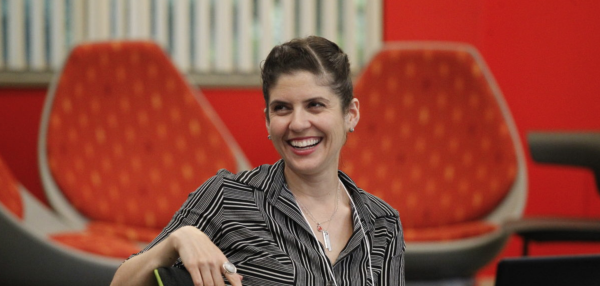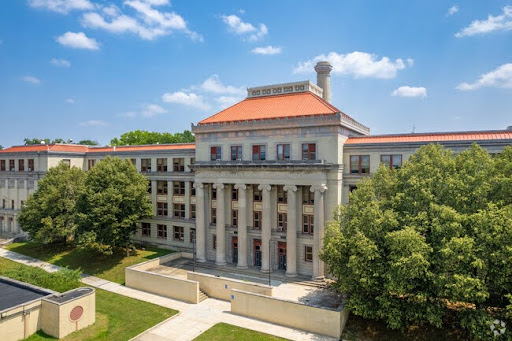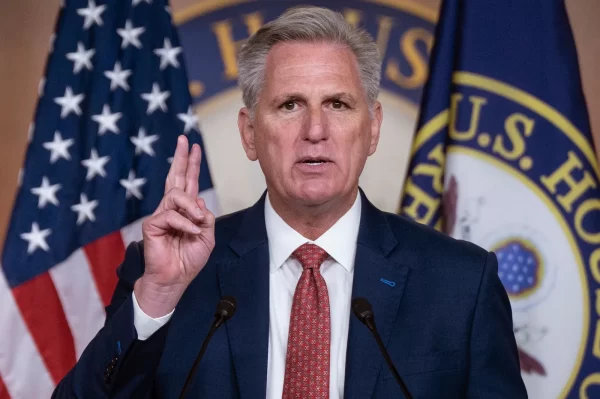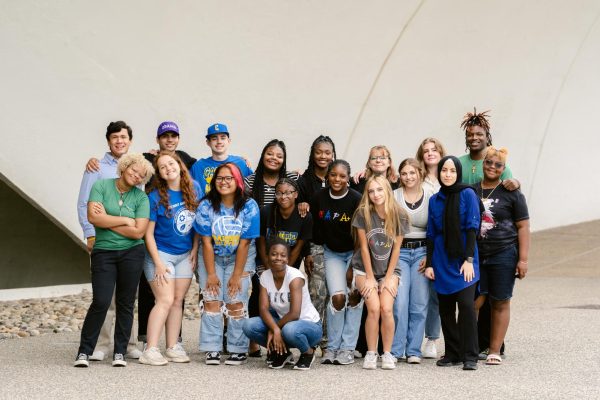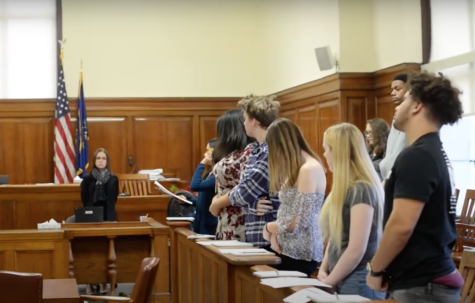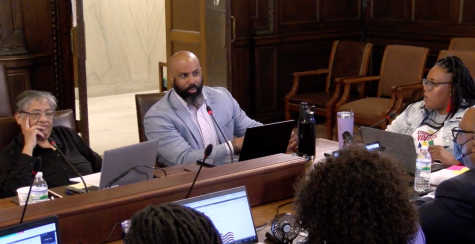‘QAnon Anonymous’ Host on the Importance of Students Understanding Conspiracy Theories
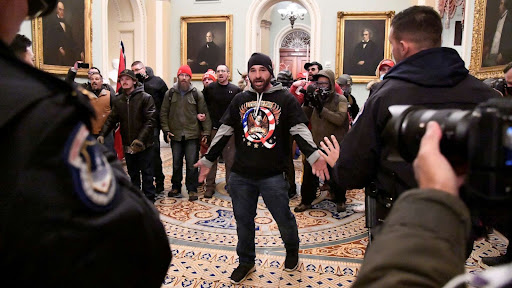
(Manuel Balce Ceneta/Associated Press)
The FBI says Douglas A. Jensen, pictured above, was among the first to breach the Capitol on January 6.
On November 2, QAnon supporters gathered in Dallas, Texas for a rally, expecting deceased John Kennedy Jr. to return as Donald Trump’s running mate for the 2024 Presidential election. In a very anticlimactic fashion, Kennedy did not return from the dead (despite the expectations of hundreds of supporters). It did, however, highlight a trend of how conspiracy theories are building a cultural norm of outlandish beliefs in American politics.
If you have not heard of QAnon, it is an online conspiracy theory that dates back to 2017, when an anonymous poster calling himself “Q” began writing on an online message board. The individual claimed to be a high-ranking government official. QAnon is the overall blanket term for conspiracy theories that (falsely) allege that the world is run by a covert cabal of satanic pedophiles. A study by the Public Religion Research Institute (P.R.R.I.) found that one in five people in the United States believes in some component of QAnon.
Travis View is a reporter for the Washington Post and a co-host of Q-Anon Anonymous, an investigative podcast that tackles Q-Anon-related conspiracy theories, and conspiracy theories as a whole. The podcast investigates how conspiracies play into mainstream culture. Since it premiered in 2018, the podcast listener base has grown greatly. They discussed hundreds of issues with on-the-ground reporting, and fact hunting on Q-Anon-based message boards like “8-Chan” and “Great-Awakening”.
Part of being a high school student is learning how to be an informed citizen. “When students understand how baseless conspiracy theories work, they can more easily spot disinformation that spreads online or is promoted by politicians,” Mr. View says in an interview. He continues, “This makes students more prepared to analyze the news they consume and be more informed citizens.”
Conspiracy theories are not new in American politics, Mr. View explained, “the first third party of the United States, the Anti-Masonic Party in the eighteenth century, was dedicated to the idea that the free-masons and Illuminati were plotting to control the world”. Conspiracy theories also inspired hundreds of people to storm the capitol during the January 6 insurrection. Conspiracy theories like Q-Anon have found themselves once again at the center of political debate and open discussion.
Mass disinformation campaigns played heavily into the planning of the Capitol Riot. Platforms like voat-a far-right “free speech” alternative to Reddit-and facebook, served as platforms where QAnon supporters preemptively planned to attack the capitol and key figures they saw as “enemies to Trump”, including Vice-President Mike Pence.
Mr. View further described how conspiracy theories are often associated with violence and are rooted in anti-Semitism. Three years ago, the Tree of Life synagogue mass shooting was perpetrated by a man who was largely self-rooted in anti-Semitic conspiracy theories. Conspiracies are a threat to our safety.
Politicians are now publicly supporting conspiracy theories. Students must be able to recognize when politicians are just reiterating baseless conspiracies, or when they are covering up abuses of power and corruption. High schoolers today are some of the most politically active students in history. They are also constantly being presented with new information. Conspiracy theories are designed to turn any rational person irrational, and young people are impressionable. Understanding conspiracy theories is as crucial as understanding the current political climate. The two are intertwined.










